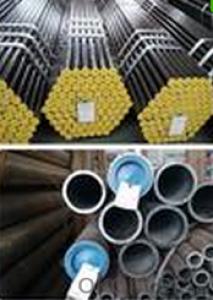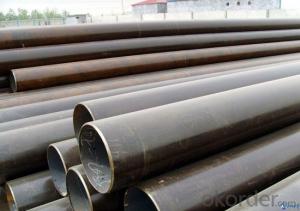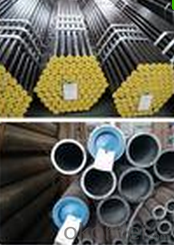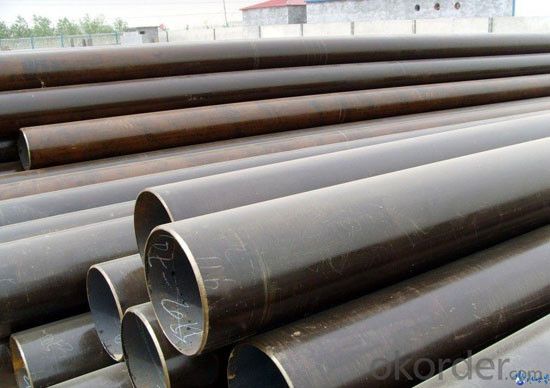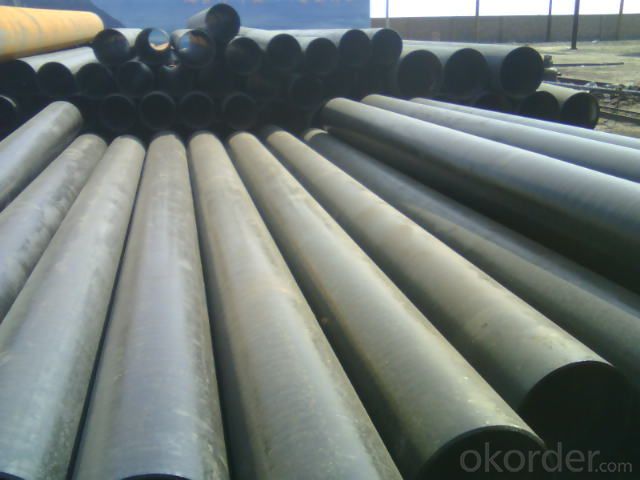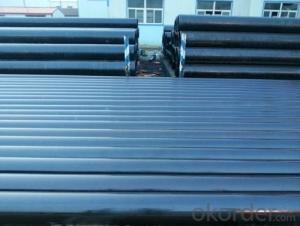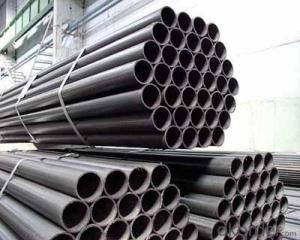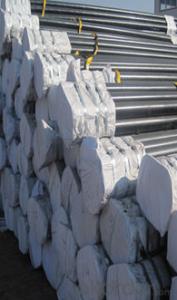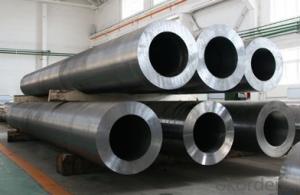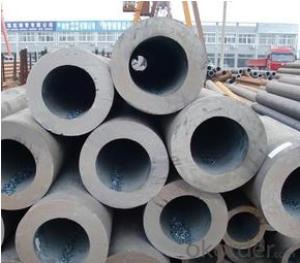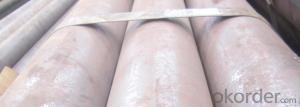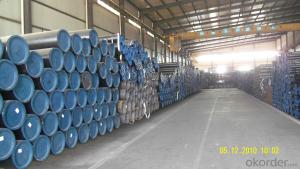Steel pipe for carbon seamless ,API N80, cnbm
- Loading Port:
- Qingdao
- Payment Terms:
- TT OR LC
- Min Order Qty:
- 10 pc
- Supply Capability:
- 30 pc/month
OKorder Service Pledge
OKorder Financial Service
You Might Also Like
Quick Details
Thickness: 6 - 50 mm Section
Shape: Round,r
Outer Diameter: 33 - 600 mm
Secondary Or Not: Non-secondary
Application: Fluid Pipe
Technique: Hot Rolled,Hot Rolled,Cold Drawn,Hot Expanded Certification: API Surface Treatment: Beveled end or plain end or varnished as per buyer
Special Pipe: API Pipe Alloy Or Not: Non-alloy
Brand Name: XPY(Xinpengyuan)
Length: 6-12m or according to clients' requirements
Standard: BS 3059-2,JIS G3454-2007,GB 5310-1995,GB 3087-1999,GB/T 8163-1999,GB/T 8162-1999,GB 6479-2000,DIN 1629/3,DIN 2448,ASTM A106-2006,ASTM A53-2007,API 5CT,API 5L,BS,JIS,GB,DIN,ASTM,API
Certification & Standard | SGS & AISI |
Type | Cold Rolled |
Thickness | 0.14mm ~ 1.5mm |
Width | 10mm ~ 1240mm |
Length | As customers' requirements |
Surface finish | NO.2B/ NO.3/ NO.4/ HL/ 8K/ BA |
Chemical Composition (MT)% | (C) :≤0.12% (Si) :≤0.75% (Mn) :≤1.00% (P) :≤0.040% (S) :≤0.030% (Ni) :≤0.60%(Available to contain) (Cr) :16.00~18.00% |
Advantage | Good flexibility, Resistant to corrosion, Thermal Conductivity and lower thermal expansion. |
Application | l Be uesd in manufacturing kitchen ware field. l Auto exhaust parts, Heat exchanger, Washing machinery. l Interior/ Exterior decoration for building l Household Appliances or Appliance components. |
Market | Southeast Aisa, Mid East, Africa, Estern Aisa, Western Europe ,etc. |
Packing | Bundle package, Wooden case, Container or bulk, etc in export standard ;or as customers'requests |
- Q: How are steel pipes protected against electrolytic corrosion?
- Steel pipes are protected against electrolytic corrosion through various methods such as applying protective coatings, using sacrificial anodes, implementing cathodic protection systems, or utilizing corrosion inhibitors. These measures help to prevent the flow of electric current and the subsequent corrosion caused by electrolysis, ensuring the longevity and integrity of the steel pipes.
- Q: What is the minimum temperature that steel pipes can handle?
- The minimum temperature that steel pipes can handle depends on the specific grade and composition of the steel. Generally, steel pipes can handle extremely low temperatures without experiencing any significant issues. In fact, many types of steel are specifically designed to withstand extremely cold temperatures, making them suitable for various applications in industries such as oil and gas, construction, and cryogenics. However, it is important to note that at extremely low temperatures, steel may become more brittle, which can affect its mechanical properties. Therefore, it is essential to carefully select the appropriate grade of steel and consider any specific requirements or limitations for the intended application when determining the minimum temperature that steel pipes can handle.
- Q: Can steel pipes be used for underground cooling systems?
- Yes, steel pipes can be used for underground cooling systems. Steel pipes are commonly used in various applications, including underground cooling systems, due to their durability, strength, and resistance to corrosion. They can effectively handle the high pressure and temperature demands of cooling systems. Additionally, steel pipes can be welded or threaded together, allowing for easy installation and maintenance. However, it is important to ensure that the steel pipes are properly coated or insulated to prevent corrosion and maintain efficiency in heat transfer.
- Q: Can steel pipes be used for transporting hazardous materials?
- Yes, steel pipes can be used for transporting hazardous materials. Steel is highly durable and can withstand the pressure and temperature requirements of hazardous material transportation. Additionally, steel pipes can provide a reliable barrier against leaks and spills, minimizing the risk of environmental contamination. However, it is essential to consider the specific properties and compatibility of the hazardous material being transported to ensure the steel pipes are suitable for the task.
- Q: Can steel pipes be used for conveying slurries or abrasive materials?
- Yes, steel pipes can be used for conveying slurries or abrasive materials. Steel pipes are known for their strength and durability, making them suitable for handling heavy-duty applications. They are resistant to wear, corrosion, and impact, which makes them ideal for conveying abrasive materials or slurries that contain solids or particles. Additionally, steel pipes can withstand high pressure and maintain their structural integrity, ensuring the safe and efficient transportation of slurries or abrasive materials.
- Q: What's the difference between steel pipe and pipe fittings?
- Steel: steel pipe is a hollow steel strip, used as pipe conveying fluid, such as oil, gas, water, gas, steam, in addition, the bending and torsional strength of the same, the weight is light, so it is widely used in the manufacture of machinery parts and engineering structures. It is also used to produce all kinds of conventional weapons, guns, shells and so on.
- Q: What is the weight of hot galvanized steel tubes? DN150 4mm wall thickness
- GB/T3091-2008: DN150 welded steel pipe, wall thickness of 6mm, the theory of the weight of welded steel pipe 24.02kg/m, galvanized steel pipe should be multiplied by the weight coefficient after galvanizing, C, DN150, wall thickness of 6mm, C=1.02, DN150, theoretical weight and wall thickness of 6mm galvanized steel 1.02*24.02= 24.5kg/m.
- Q: Can steel pipes be used for wastewater treatment facilities?
- Yes, steel pipes can be used for wastewater treatment facilities. Steel pipes are commonly used in wastewater treatment plants due to their durability, resistance to corrosion, and ability to withstand high pressures and temperatures. They are suitable for transporting various types of wastewater, including industrial effluents and sewage, making them an ideal choice for such facilities.
- Q: How long do steel pipes last?
- There are several factors that can influence the lifespan of steel pipes. These factors include the quality of the steel used, the installation environment, and the maintenance and care provided to the pipes. Steel pipes are generally recognized for their durability and long life. When properly installed and regularly maintained, steel pipes can endure for many decades, sometimes even surpassing 50 years. However, it is important to consider external factors that can greatly impact their lifespan, such as corrosion, exposure to extreme temperatures, and chemical reactions. To ensure the reliability and functionality of steel pipes for an extended period, it is crucial to conduct regular inspections, make timely repairs, and apply protective coatings.
- Q: How are steel pipes cleaned and flushed?
- Steel pipes are cleaned and flushed using a variety of methods. One common method is high-pressure water jetting, where water is forcefully sprayed through the pipes to remove debris and sediments. Chemical cleaning agents are also used to dissolve any stubborn deposits. Additionally, mechanical methods such as using wire brushes or pigs (devices inserted into the pipes to scrape the interior) can be employed to remove any remaining buildup. Regular maintenance and inspection are crucial to ensure the cleanliness and efficiency of steel pipes.
Send your message to us
Steel pipe for carbon seamless ,API N80, cnbm
- Loading Port:
- Qingdao
- Payment Terms:
- TT OR LC
- Min Order Qty:
- 10 pc
- Supply Capability:
- 30 pc/month
OKorder Service Pledge
OKorder Financial Service
Similar products
Hot products
Hot Searches
Related keywords
